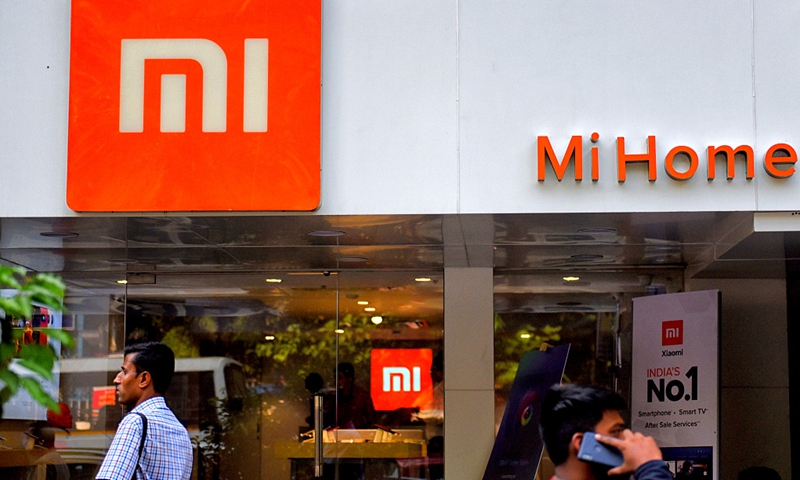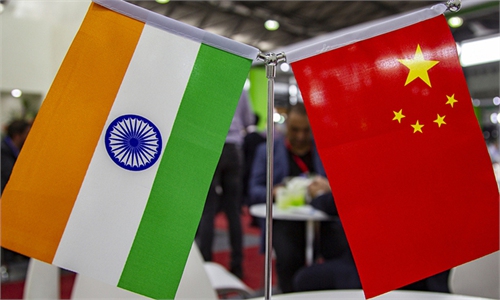
A Xiaomi store in India File Photo: VCG
Indian media outlet, The Economic Times, on Sunday hyped about a "data leak" targeting Chinese companies as more than 500 subsidiaries of Chinese companies in India are reportedly under scrutiny by local authorities for alleged "financial irregularities." Chinese companies were found to have "collected a large amount of personal data on individuals," exacerbating "national security concerns," said the report.
"Data leak" and "national security concerns" are common excuses used by anti-China politicians and media in India to push unreasonable investigations and restrictions on Chinese companies. These catch-all and baseless excuses have become a typical demonstration of the country's protectionist and discriminative approaches against Chinese businesses. The Economic Times report is nothing but another slandering piece full of ill-intentioned speculation.
In fact, Chinese companies going to the Indian market fully respect local laws and regulations and attach great importance to protecting users' personal data. For example, in order to address concerns about privacy, Chinese smartphone maker Xiaomi Inc set up a data center in India in 2015 and used high encryption and security standards to protect the data of local users.
Indian Prime Minister Narendra Modi proposed the strategy to build up India's digital strength when he came to power but the country has been taking an increasingly protective approach in its digital power push. In recent years, under the guise of "national security," India has banned nearly 100 Chinese apps.
However, the development of India's digital economy has not been satisfactory in recent years. According to the 2018 World Digital Economy Competitiveness Ranking, released by the Chinese Academy of Social Sciences, India ranks the 22nd with a digital weight of only 20 percent in its overall GDP. In comparison, China ranks second with a digital economy of $4.02 trillion, accounting for 30.52 percent of its GDP.
It is clear that, from the perspective of promoting the development of the domestic digital industry in India, protectionist measures are clearly counterproductive. The current discriminatory policies and measures against Chinese companies in India will only further poison its own business environment and weaken the confidence of Chinese companies.
Data security is an emerging issue along with the rapid growth of digital industries. Regarding the attitudes toward Chinese companies, there are different voices. India should carefully consider and take more reasonable actions on how to view Chinese companies entering its digital economy.
It would be short-sighted if India allows false accusations and a hostile sentiment toward Chinese companies to take roots and actually implement measures that harm the interests of Chinese companies. It will eventually ruin the momentum of India's digital economy and hinder its own digital progress.


